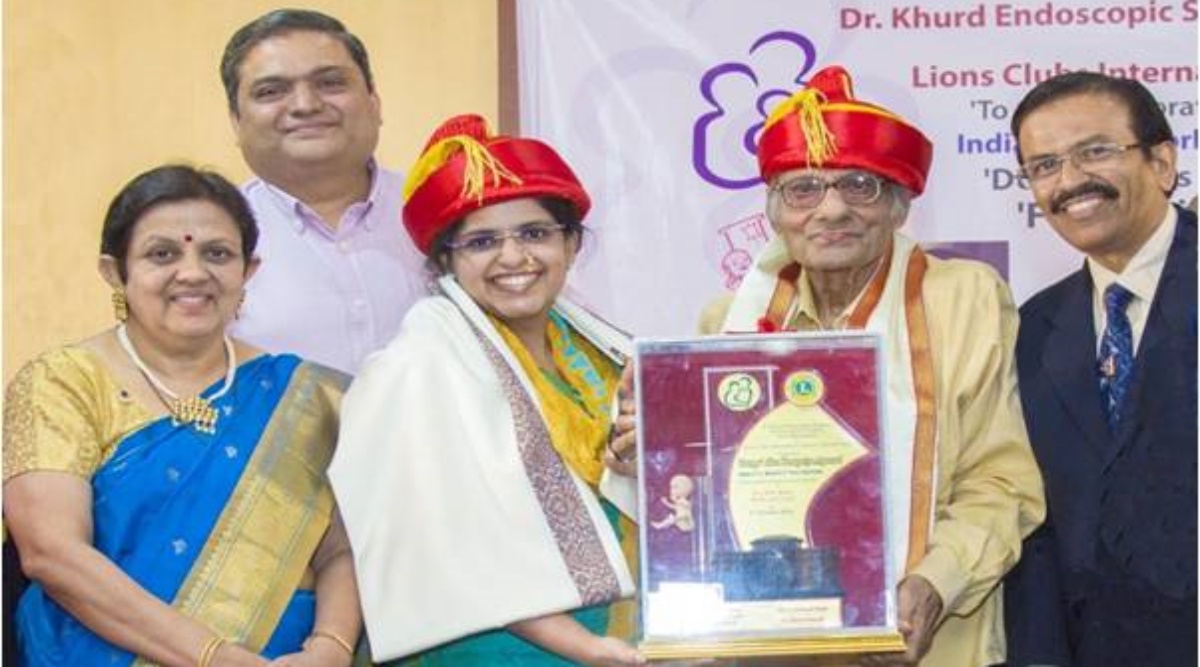October 3, 1978 was the first day of Durga Puja in Kolkata. For the Agarwal family, who had not yet thought of a name for their new-born, the choice came easy. They fittingly named her Durga as she was India’s first test tube baby. As India turns 75, Kanupriya Agarwal (45) aka Durga, who lives in Mumbai with her husband and nine-year-old daughter, is grateful that she was born. For it gave women, who couldn’t conceive naturally, a choice to have a baby. Kanupriya herself has had a natural conception.
“Today, there is an in-vitro fertilisation (IVF) boom. IVF treatments are like vitamins available over the counter and at times it is a choice that people avail of without needing it,” says Kanupriya. “It is a fact that women today can do a lot more than they were able to. IVF gives them an opportunity to even choose pregnancy, which I think is great. It is an option for women choosing late motherhood. Why should a person not exercise that? If we say there is freedom of expression and right to life, nothing should stop me from choosing the right to have a baby at a certain time,” says Kanupriya.

She was not just India’s first but also the world’s second IVF baby. Dr Subhash Mukherjee’s path-breaking invention meant that Kanupriya was born just 67 days after the first of her kind in the UK. A brilliant scientist who pioneered research in this technology years ago, the doctor’s incredible accomplishment was recognised only decades later. For Kanupriya, this has been a glaring anomaly as she remembers petitioning for a Bharat Ratna for the scientist. “There is no doubt a political space. What is the point of having such an award – nation’s honour – when incredible scientists are not considered? The first test tube baby is as much a research and medical miracle,” she reasons. “Dr Mukherjee had to face several challenges and criticism. Yet he had a focussed mind and created useful techniques within his own resources. His recognition is a requirement,” she says.
“It is tragic that there is not much difference in how scientists were treated 75 years ago and today. This is a competitive space and to get proven results, they need time and money. Scientific breakthroughs don’t come easy and there is a lot of failure out there. If lucky, one can probably manage a success story in a lifetime. We need to encourage and fund research and development to hold back our talent. The first step should be to recognise heroes like Dr Mukherjee,” she argues.
Most Read 1Asian Games 2023 Day 10 Live Updates: Lovlina Borgohain qualifies for gold medal match, Abhishek-Ojas set up all-Indian archery final; bronze from Canoe sprint and boxing 2Jawan box office collection day 26: Shah Rukh Khan’s blockbuster refuses to slow down, nears Rs 1100 crore worldwide gross 3Navya Naveli Nanda makes her debut at Paris Fashion Week, Aishwarya Rai walks the same ramp. Watch 4After Tejasvi Surya asks Karnataka govt to reconsider carpooling ‘ban’, transport minister Reddy says apps need permission 5World Cup: Hasan Ali’s father-in-law in Nuh, Haryana waits to see his grandchild for first time when India meet Pakistan at Ahmedabad
“Every research breakthrough ensures economic benefits. That’s why today India is looked at as an IVF hub. At various conferences that I have attended, doctors tell us how they are respected globally,” she says.
Dr Sanjeev Khurd, who set up the first exclusive infertility centre in Pune 35 years ago and is the former president of the Pune Obstetric and Gynaecological Society, says there are more than 3,000 IVF centres across the country. In general, 10 per cent of all married couples face infertility issues. “Apart from medical reasons for couples seeking IVF treatment, the marriageable age of women has also gone up, causing complications in some cases. Added to that are stress-related factors. But technology has become standardised and now it is not difficult to start an IVF centre. However, 90 per cent of the smaller centres are doing less than 100 IVF cycles,” he adds.
Also ReadRight or left arm? What is the right way of measuring BPKnow why beetroot is great for heart, diabetes and gut healthWhat if I cannot sleep more than 5 hours despite my best efforts? How to …Dengue fever: Why do you need to stick to Paracetamol? Painkillers increa…
Kanupriya recalls asking her mother Bela why she was desperate for a child. “There was no question of the family mistreating her because she was a home-maker. But she felt incomplete. Her fallopian tubes were blocked and dad’s sperm count was low. It was a two-party problem, something that has opened up conversations about male fertility too,” she says. “Dr Mukherjee was very open and transparent and said he would give it his best shot. Dad did not want to tell the family about a procedure that was unpredictable. They were practical and the pregnancy was uneventful. Hence the media rush after I was born as the first test tube baby was something that my father was completely unprepared for. They were very simple people. He reportedly said, ‘I got a healthy child and what is there to talk about?’ ” she recalls. There is much to talk about still because Kanupriya will always give many women a reason to hope.



